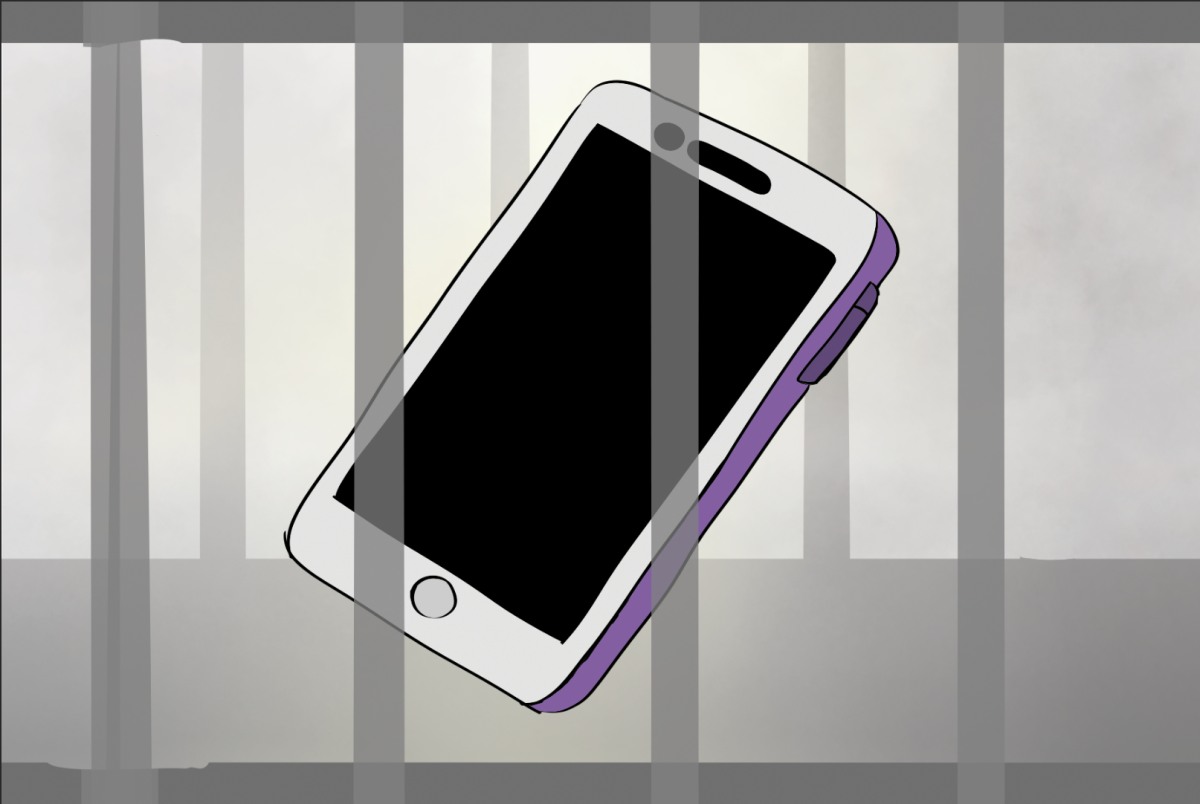The night of Jan. 21, I shut off my phone and put it in my desk drawer. When I woke up on Jan. 27, I dreaded turning it back on and having to catch up on everything I missed. I challenged myself to go five days without my phone and only used my computer to complete schoolwork and stay connected with family and peers when necessary. Below are my day-by-day experiences.
Day one: Overcome with the feeling I was forgetting something, I began adjusting to not having my phone. My life remained normal until I got to the gym. I usually start my workouts with 15 minutes of cardio, but after two minutes I realized how important music was for motivation. Without music blasting in my ears, I became bored and tired much sooner than usual. When I weight train, I usually finish a set and immediately reach for my phone. Without it, I was stuck looking around aimlessly while I recovered.
Day two: I spent the day downtown at the Shedd Aquarium. When one of my friends missed our train, I panicked because I had no way to communicate with her. Using public transportation without a mobile GPS was challenging because I did not know my location and could not get directions. As someone who likes to be in control, I found it hard to let go and allow my friends to be in charge of navigation. When we arrived at the aquarium, my instinct was to reach for my phone to snap a picture. I felt that without pictures, I had no proof I was there, so I struggled to overcome that mentality and live in the moment.
Day three: On the first day of second semester, having no phone was challenging because I could not triple-check my new classes and their room numbers. I also realized using my phone is my go-to activity in school. While walking in the halls, during downtime in class or waiting for a friend, I would have usually opened social media or texted. Without my phone, I was stuck sitting around and observing those around me. I noticed, like me, people typically default to using their phone. Whether it was free time in math or waiting around in P.E. class, most students were focused on the screen in front of them, so I felt awkward not having a phone.
Day four: When I walked into the English Resource Center before school, I was quickly puzzled because my friends were discussing drama unfolding on social media. I was completely lost because I had missed out on all of the news shared online. Without being able to constantly check social media, I was out of the loop, which made conversations hard to follow. I feared missing out, but I enjoyed the peace of not being engulfed in the world of my phone.
Day five: When I went to the boys basketball game at Deerfield, I was more engaged with the game and talked to more people because I could not bury my face in my phone. I struggled to get to the game because I did not have navigation to direct me. Once in the school, I realized I had no way of buying tickets because I did not have any cash, and the only other way to purchase tickets was with a QR code. Luckily, a friend used her phone to buy my ticket.
Conclusion: Although I am excited to have my phone back because it makes communication easier, I found I got work done faster, went to bed earlier and was more attentive in school without it. Even though not having my phone for five days was daunting, the experience helped show me the benefits of living phone-free. I now leave my phone at home when possible and set more limits on my screen time.


